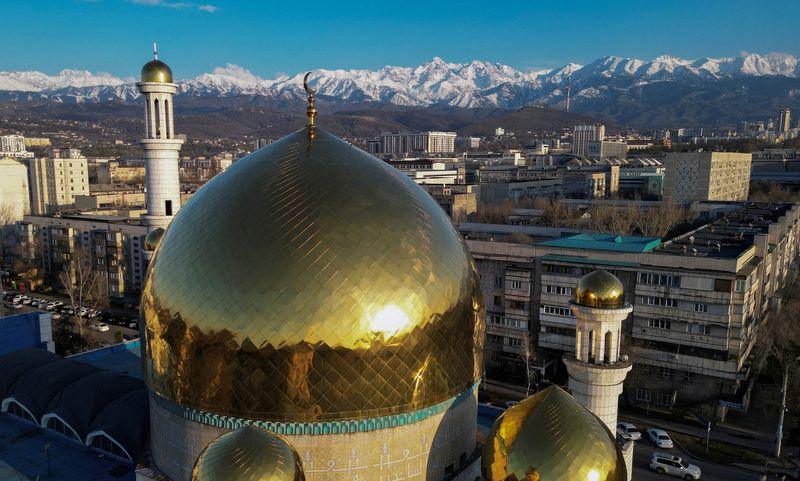((This Sept. 13 has been corrected to fix the minister’s surname throughout, to Sharlapaev from Sharlapayev))
By Olzhas Auyezov and Eric Onstad
ALMATY (Reuters) – Kazakhstan aims to boost output of metals needed for electric vehicle (EV) batteries and is issuing hundreds of new exploration licences to attract fresh investment in the sector, the country’s industry minister told Reuters. The former Soviet republic promotes itself as a dependable supplier of the majority of critical materials outlined by theEuropean Union, at a time when Russia has threatened to curb exports and China is tightening control over rare earths. Kazakhstan has signed deals with the European Union and Britain on the supply of critical minerals.
“People know that Kazakhstan is very reliable… We’ve been supplying markets for a very long time,” industry minister Kanat Sharlapaev said in an interview this week. The Central Asian nation, the world’s ninth-largest by landarea but sparsely populated, has deposits of 90% of the elementsof the periodic table and is already a significant exporter offerroalloys, gold, and .The country wants to gain market share in battery materials such as lithium, cobalt, manganese, nickel and graphite amid rising demand for the materials, Sharlapaev said. Kazakhstan already mines manganese, but last year it launched processing of manganese sulphate and aims to eventually capture 10% of the global market for the battery material. It also supplies phosphates for fertilisers and aims to process material needed for LFP (lithium ferro phosphate) batteries that are growing in popularity, he added.
“Building scalable processing of battery grade metals is something we want to expand,” said Sharlapaev, a former banker with Citigroup.
“We already have production facilities, it’s just a matter of expanding the range of those materials.”
RUSSIAN THREAT
Russian President Vladimir Putin said this week that Moscow should consider limiting exports of uranium, titanium, nickel, and potentially other commodities in retaliation for Western sanctions.
Kazakhstan is a major global supplier of both uranium andtitanium. It also holds 2% of world nickel reserves, but has,for now, a negligible share in its global output. The country has also yet to tap its deposits of lithium, another key metal, but exploration is underway.
To speed up exploration and development, the cabinet streamlined the procedures for exploration licences and moved them online, he said.

This has hiked the number of issued licences so far this year to 487 compared to 397 for all of 2023, according to data from the ministry. Major mining companies involved in exploration in Kazakhstan include BHP, Rio Tinto (NYSE:), First Quantum Minerals (OTC:), Fortescue and Teck Resources (NYSE:).
The European Bank for Reconstruction and Development (EBRD) said last month it had bought a stake in a firm exploring for graphite in Kazakhstan. Although Kazakhstan is a member of Russian-led economic andsecurity blocs, it has maintained neutrality in theRussia-Ukraine conflict, promised to abide by Western sanctionsagainst Moscow, and actively participates in the development ofcargo transit routes bypassing Russia.

